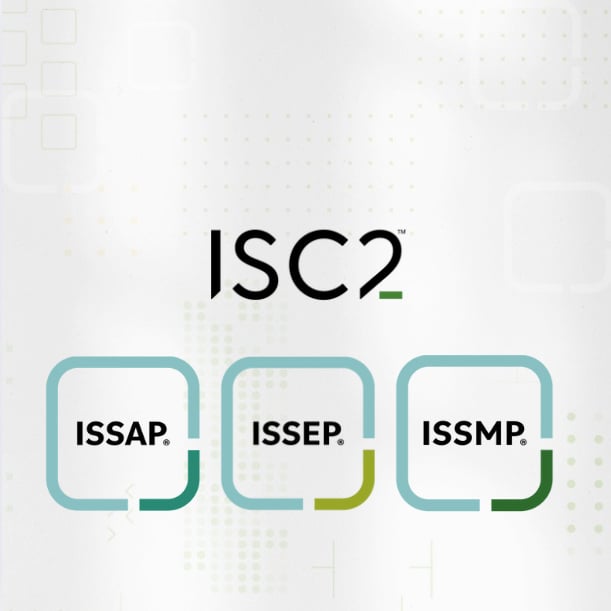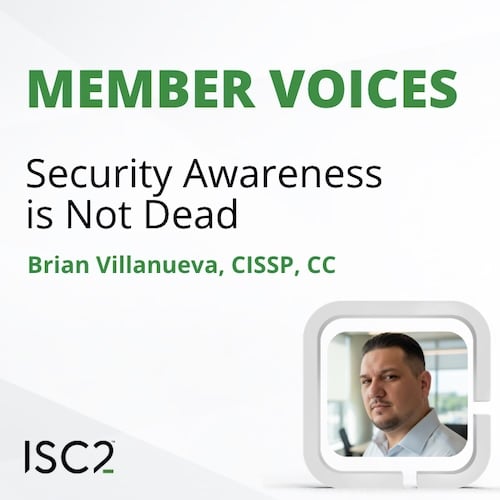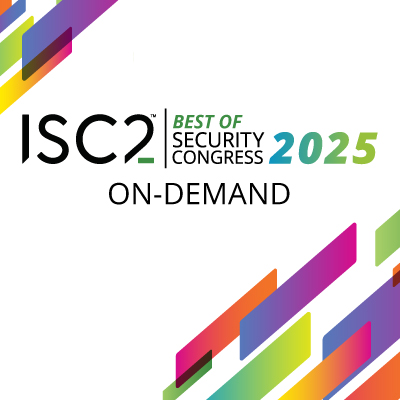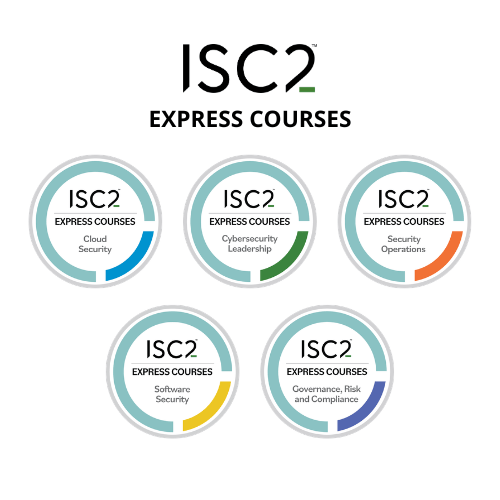CISSPs are moving forward to defend and build a safe and secure cyber world. As industry professionals know, the world of cybersecurity moves fast and honing your skills is a great way to stay ahead of threats. In the latest ISC2 Cybersecurity Workforce Study, most CISSPs, 55%, shared they are eager to continue building upon their knowledge by earning another certification. ISC2’s advanced certifications are the logical next step for CISSPs and can be earned by those with a CISSP and two years of experience in one of the certifications domains or by those with seven years of experience in two or more of the applicable domains. There are three unique certifications intended for industry experts looking to level up:
ISSAP Certification: Elevate Your Role as a Cybersecurity Architect
Information Systems Security Architecture Professional (ISSAP) is the ideal credential for chief security architects, security analysts, and professionals responsible for designing and implementing enterprise-wide security solutions. As a cybersecurity architect, you serve as a critical bridge between executive leadership and the technical implementation of your organization’s security strategy. With ISSAP, you validate your expertise in:
- Security architecture design and analysis
- Enterprise security solutions
- Access control systems and methodologies
- Cryptography and secure communications
- Governance, risk, and compliance (GRC)
ISSEP Certification: Lead Secure System Design Across Business Operations
Information Systems Security Engineering Professional (ISSEP) is the ideal credential for cybersecurity professionals who integrate security engineering into every aspect of business operations. Whether you're designing secure systems, managing risk, or aligning security with organizational goals, ISSEP validates your ability to apply engineering principles to build resilient, compliant and scalable solutions. With ISSEP, you demonstrate expertise in:
- Security engineering processes and lifecycle integration
- Secure system development and architecture
- Risk management and compliance alignment
- Security integration in applications, projects and business processes
- Information systems protection across enterprise environments
ISSMP Certification: Lead with Intention in Cybersecurity Management
Information Systems Security Management Professional (ISSMP) is designed for experienced cybersecurity managers, security leaders and professionals who oversee the strategic direction of information security programs. As an ISSMP-certified professional, you play a vital role in your organization’s success—bridging the gap between executive leadership and operational security teams. With ISSMP you validate your ability to:
- Establish and govern enterprise-wide security programs
- Lead incident response and recovery efforts
- Present security strategies to stakeholders and boards
- Demonstrate deep leadership and risk management skills
- Align security initiatives with business objectives
ISC2 Insights recently asked advanced certification holders about why they chose to elevate their learning and what advice they would offer for those considering their next move.
What drove you to consider an advanced certification?
An advanced certificate allows professionals to systematically master knowledge in their field and build their own knowledge framework, which is highly important in the workplace. Taking ISC2 certifications as an example, after obtaining CISSP, one can pursue advanced credentials such as ISSAP, ISSMP, and ISSEP. Together, these certifications construct a comprehensive set of skills and expertise required in the field of information security, making it an effective and career-oriented way of continuous self-improvement. - Chiung-ying Huang ISSAP, ISSMP, CISSP
Learning is a continuous journey, and the advanced certification would provide an additional path beyond (the CISSP). While the CISSP is a hallmark of cybersecurity certification, ISSMP and ISSAP have brought me additional value by concentrating on Management and Architecture specializations. I would suggest a path to an advanced certification as one gains more experience and seeks to advance further. - Leonard Ong ISSAP, ISSMP, CISSP, CCSP, CSSLP
My drive to pursue an advanced certification is an amalgamation of factors. I wanted to express my expertise both to myself, and to others in the security engineering field in a manner that helped add emphasis to the resume of my work. I also wanted to prove to myself that I am capable of pursuing advanced certification. I passed the CISSP exam early in my career and wanted to keep myself fresh, and knowledgeable on the certifications that are offered as more varied options and advanced certifications come available from different bodies. - Cameron Pletcher ISSEP, CISSP
I’d reached the point where “good engineer” wasn’t enough, I needed a recognised, vendor-neutral way to evidence architectural judgement, leadership, and the ability to land complex change safely (think multi-cloud landing zones, Databricks governance, and AI/ML security in regulated environments). The ISSAP and ISSMP paths gave me a common language with boards, auditors, and regulators. - Steven Lawrence ISSAP, ISSMP, CCSP
Obtaining a certification significantly boosts the credibility of security professionals, providing them with a competitive edge over their peers who may possess similar knowledge and experience but lack a formal means to validate their skills to customers, recruiters, or managerial staff. Achieving the CISSP designation was the initial milestone that set the foundation for this advantage. However, as one progresses further in their career, it becomes increasingly clear that there is a pressing need for specialization and ongoing improvement. This pursuit of deeper expertise not only enhances professional standing but also ensures that security professionals remain at the top of the trends in this ever-evolving field. - Adrian Galindo ISSMP, CISSP, CCSP
What advice would you give someone on an advanced certification journey?
My advice is simple: don’t chase letters for your résumé. Instead, choose certifications that align with the direction you want your career to grow. Utilize the study process to develop real-world skills, not just for exam recall. That way, the credential becomes a natural extension of your professional growth, not a disconnected achievement. - Ankit Gupta ISSMP, CISSP, CCSP
For anyone considering an advanced certification like ISSAP, my advice is to view it as more than an exam. Treat it as an opportunity to develop an architect’s mindset - to ask why things are designed the way they are, to challenge assumptions, and to connect security with business outcomes. Ground your learning in practical scenarios, engage with peers, and let your studies fuel the curiosity that first drew you to security architecture. - Jake Eliasz ISSAP, CISSP, CCSP
My advice is first to start with a clear goal. Know why you want the certification, whether it is for career growth, specialization, or credibility. Begin with a foundational certification to broaden your understanding, then use advanced certifications to specialize where you can add the most value. And finally, do not just aim to pass. Focus on how the concepts apply in real-world scenarios so you can use that knowledge in your day-to-day work. - Peter Kremers ISSAP, CISSP, CCSP
Learn more about the recently released all new trainings and exam outlines for ISSAP, ISSEP and ISSMP and get started on your training today.



